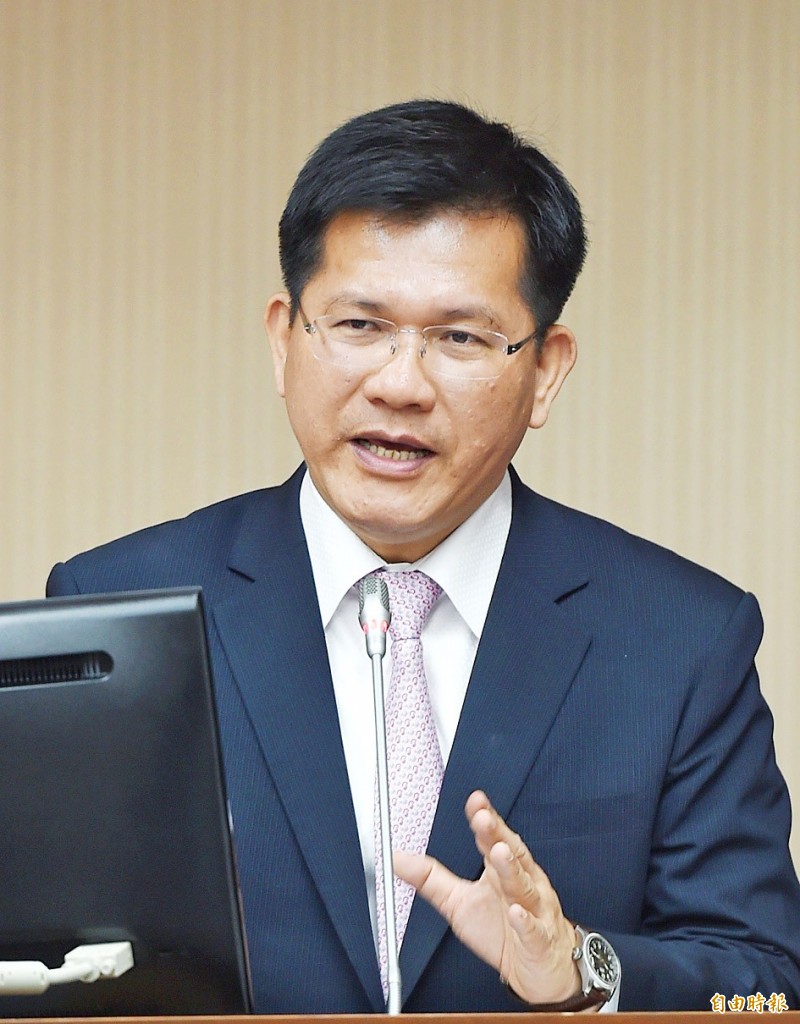《TAIPEI TIMES》 Government mulls ignition locks for drunk drivers

Minister of Transportation and Communications Lin Chia-lung speaks at a meeting of the Transportation Committee at the Legislative Yuan in Taipei yesterday. Photo: Fang Pin-chao, Taipei Times
By Shelley Shan / Staff reporter
The Executive Yuan is mulling legislation that would require recidivist drunk drivers to install ignition interlocks in their vehicles, Minister of Transportation and Communications Lin Chia-lung (林佳龍) told lawmakers yesterday, adding that it is to meet with Ministry of Justice officials today to discuss issues in enforcing such a requirement.
Lin attended a meeting of the legislature’s Transportation Committee to brief lawmakers on proposed amendments to toughen sanctions against drunk drivers.
In addition to raising fines and prison sentences for drunk drivers in the Road Traffic Management and Penalty Act (道路交通管理處罰條例) and the Criminal Code, one of the ministry’s proposed measures is using ignition interlocks.
However, no such lock has been made for motorcycles, which account for up 70 percent of drunk-driving cases recorded by police each year, the ministry said.
Democratic Progressive Party (DPP) legislators Hsiao Bi-khim (蕭美琴) and Liu Chao-hao (劉櫂豪), as well as Chinese Nationalist Party (KMT) legislators Jason Hsu (許毓仁) and Jennifer Tung (童慧珍), proposed the use of interlock devices at the question-and-answer session.
Citing statistics from the US, Hsiao said ignition interlocks have been proven to reduce drunk-driving recidivism by 70 percent, adding that a loophole of drivers having non-drinking individuals blow into the breath test for them can be negated by the use of facial recognition or other technology.
However, Hsu and Liu said that an ignition interlock costs between NT$150,000 and NT$200,000, adding that not everyone could afford to have the device installed.
They were concerned that the policy would trigger similar complaints as those when the government tried to encourage drivers to have an anti-lock braking system installed on their motorbikes.
Rather than insisting on ignition interlocks for every vehicle, the ministry is considering making them mandatory for drunk-driving recidivists and drunk drivers who caused major accidents, Lin said.
As some bus operators have already installed the devices on their vehicles, the ministry could consider offering incentives for more companies to follow suit, he said.
Many lawmakers said that about 20 percent of drunk drivers are likely to reoffend, which shows that current measures are ineffective in deterring drunk driving.
DPP Legislator Yeh Yi-jin (葉宜津) said that the vehicles offenders were driving should be confiscated on the spot.
“To drivers who are rich, the drunk-driving fine of NT$90,000 might only be about the amount of money they spend in a bar in one night. What they are afraid of is criminal punishment. I don’t care if what they were driving was a Mercedes-Benz, a Rolls-Royce or a pickup truck; their vehicle should be confiscated if drivers are caught driving while intoxicated,” Yeh said.
Other lawmakers suggested that people riding with drunk drivers should also be held responsible, including those failing to tell drivers that they should not drive or those who lend their vehicle to someone who is drunk.
DPP Legislator Chen Ou-po (陳歐珀) and KMT Legislator Johnny Chiang (江啟臣) said that the problem is that judges are too lenient.
Defendants in 98 percent of drunk-driving cases are sentenced to less than six months in jail, they said.
Even though prison terms for causing death by drunk driving should be between three and 10 years, the average sentence is about two-and-a-half years, Chiang said.
新聞來源:TAIPEI TIMES
%http://www.taipeitimes.com/













